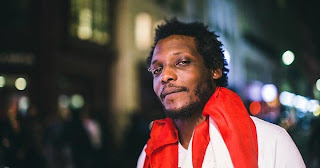Like other places in north Africa and the Middle East, the oud is also a staple of Tunisian music. There have been some minor differences in design over the centuries, such as the makers branding their name to the instrument, which was a practice that really only started in the 20th century and mainly in Tunisia. Anouar Brahem was a famous 20th century Tunisian oud player.
Besides malouf, a few other musical styles have made their way into Tunisian traditions. Mezwed uses traditional Tunisian drums called darbouka and a type of bagpipe called the mizwad. The lyrics are usually on themes of family and love but also controversial topics like racism and immigration. Another style of music that’s also tied with their national identity is salhi. This style has its roots in ancient Berber music.
Many of these musical styles also have dances that accompany them; dance plays an important part of their culture. The dance that goes with the mezwed style of music can sometimes send people into a trance. (What’s in that drink anyway?) Another type of traditional dance is called Nuba. This dance uses acrobats or sometimes jars of water. Of course, belly dancing is also seen in Tunisia as well.
 |
| F. R. David |
One Tunisian musician hit the international stage. F.R. David’s 1982 song “Words” became a hit throughout Tunisia and Europe. It’s quite on point for 1982; it did fairly well on quite a few charts and was even used in a movie.
 |
| Saber Rebai |
I listened to Saber Rebai. Unfortunately for me, I can’t read Arabic, so I don’t know the album title or any of the song titles. But what I listened to almost sounded like dance music. He’s a Tunisian of Yemeni descent and has won numerous awards for his participation in several international music festivals.
Latifa is a pop singer, and I listened to her album Aqwa Wahda. I really like her music. I can sometimes sense a bit of Western melody line, but it’s quite catchy and quite mixed with traditional vocal styles. It also seems like dance music to me.
Checkpoint 303 is a collaboration between Tunisian SC Mocha and Palestinian SC Yosh, producing their music on a nonprofit motive. It’s kind of an underground, avant-garde, activist-driven musical documentary, so to speak. The one I listened to was called The Iqrit Files.
In a completely different genre, I switched over the Myrath. Think: glam folk metal. I really like them. From what I’ve heard from their Live in Carthage album, I bet they’d be pretty awesome to see live. The band Ymyrgar is a pagan folk metal band, the first of its kind in Tunisia. They base their band name and musical style off of old Norse mythology. I plan on exploring both of them more.
When it comes to rock music, Sabri Mosbah should definitely be on the list. As both a singer and guitarist, he certainly adds a bit of rock, a bit of blues, and more than a touch of Tunisian vocal stylings to his music.
I did find a couple of hip-hop musicians. Balti was the first I listened to. I thought he had good background music, and his vocals were tight. I think Arabic lends itself to sounding good when rapped. Looks like some of his song titles are in French, English, and Arabic. Klay BBJ is another rapper I listened to. I really liked what I heard; in fact, some of it sounded like something I’d hear on the radio if it were in English. Apparently, he’s had some trouble with the police by voicing his unsavory opinion of police in some of his songs (one in particular was called “The Police are Dogs”). Another rapper who’s been at odds with the media over his promotion of Islamism is Psyco-M. I like his use of piano in his music. I’m always a sucker for a piano.
Up next: the food








No comments:
Post a Comment